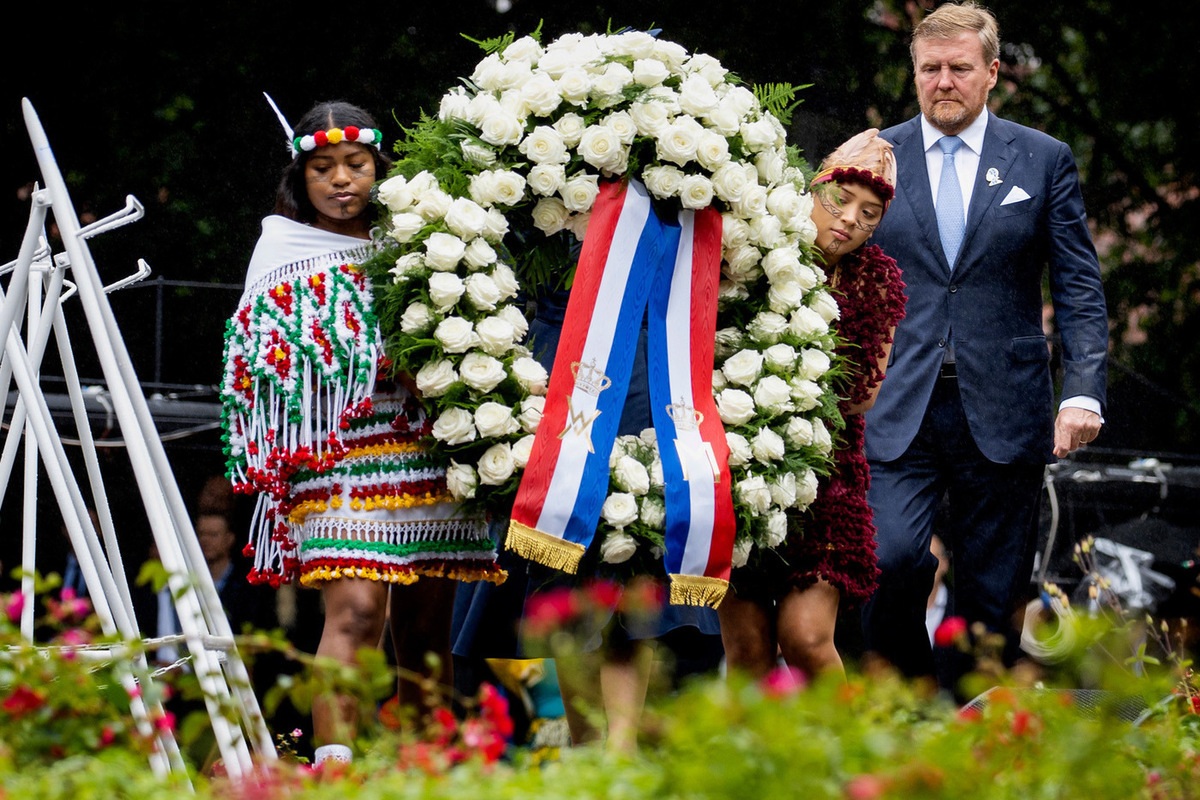The Dutch king apologized for participating in slavery: “The chain is broken”
[ad_1]

The King of the Netherlands apologized for the country’s historical involvement in the slave trade. On the day of the celebration of the 160th anniversary of the abolition of slavery in the Netherlands, Willem-Alexander says that racism is still a problem.
King Willem-Alexander of the Netherlands has apologized for his country’s historical involvement in slavery and the consequences it still has.
According to The Observer, the Dutch monarch spoke in Amsterdam on the occasion of the 160th anniversary of the legislative abolition of slavery in the Netherlands, including in the former colonies in the Caribbean.
In an emotional speech, Willem-Alexander said: “On this day, as we remember the Dutch history of slavery, I apologize for this crime against humanity. As your king and as a member of the government, I myself offer these apologies. And I feel the weight of these words in my heart and my soul.”
The monarch acknowledged that racism in Dutch society is still a problem and not everyone will support his apology. However, “times have changed and the keti-koti… the chains have indeed been broken,” he said to cheers and applause from thousands of spectators at the national monument to slavery in Osterpark.
“Keti-koti,” The Observer explains, are Surinamese words that mean “the chain is broken,” and form the name given to July 1 as a day to remember slavery and celebrate freedom.
Slavery was abolished in Suriname and the Dutch Caribbean colonies on July 1, 1863, but many enslaved laborers were forced to continue working on the plantations for another ten years.
The King’s apology came against the backdrop of a wider re-examination of the Netherlands’ colonial past, including participation in the Atlantic slave trade and slavery in their former Asian colonies. In 2020, Willem-Alexander issued an apology in Indonesia for “excessive violence” during Dutch colonial rule.
In December, Prime Minister Mark Rutte acknowledged that the Dutch state was responsible for and benefited from the Atlantic slave trade and issued an apology. However, Rutte said the government would not pay reparations, contrary to recommendations made by an advisory panel in 2021, recalls The Observer.
Last year, Willem-Alexander commissioned a study on the role of the royal house of Orange-Nassau in slavery in the Netherlands, covering the period from the end of the 16th century to the present. The results are expected to be announced in 2025.
A study published last month showed that the House of Orange made a profit equivalent to about $600 million in today’s money from slavery in the Dutch colonies from 1675 to 1770, including profits from shares in the Dutch East India Company, which were actually transferred to the royal family as gifts.
The British royal family has received at least one such gift, The Guardian reported in April. A document published by The Guardian shows £1,000 worth of shares in the Royal African Company (RAC) were transferred to William III in 1689 from Edward Colston, now the company’s infamous deputy governor. The Royal African Company captured, enslaved and transported thousands of Africans after being founded in 1660 by the House of Stuart and City of London merchants to trade along the coast of West Africa.
A further report by The Guardian revealed that the direct ancestors of King Charles III and the royal family bought and exploited enslaved people on tobacco plantations in Virginia.
A recently unearthed document has revealed that a direct ancestor of the king and the late Queen Mother, a Virginia tobacco plantation owner named Edward Porteous, was involved in the purchase of at least 200 enslaved people from the Royal African Company in 1686, writes The Observer.
In response to a report from The Guardian, Charles announced for the first time his support for research into the links between the British monarchy and the transatlantic slave trade.
A spokesman for Buckingham Palace said at the time that Charles was “deeply serious” about the issue of slavery, which he called a “terrifying atrocity”. The support for the study was part of Charles’s process to deepen his understanding of “the long-term impact of slavery,” a spokesman said.
They added: “As part of this endeavor, the royal family is supporting this research by providing access to the royal collection and the royal archives.”
[ad_2]
Source link








